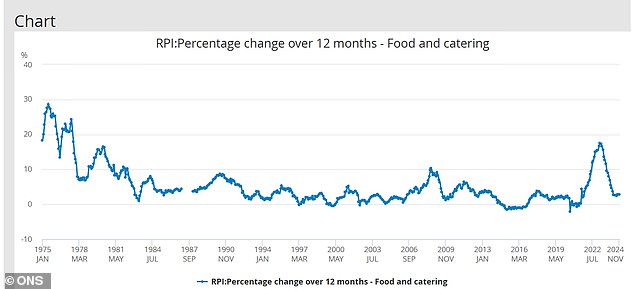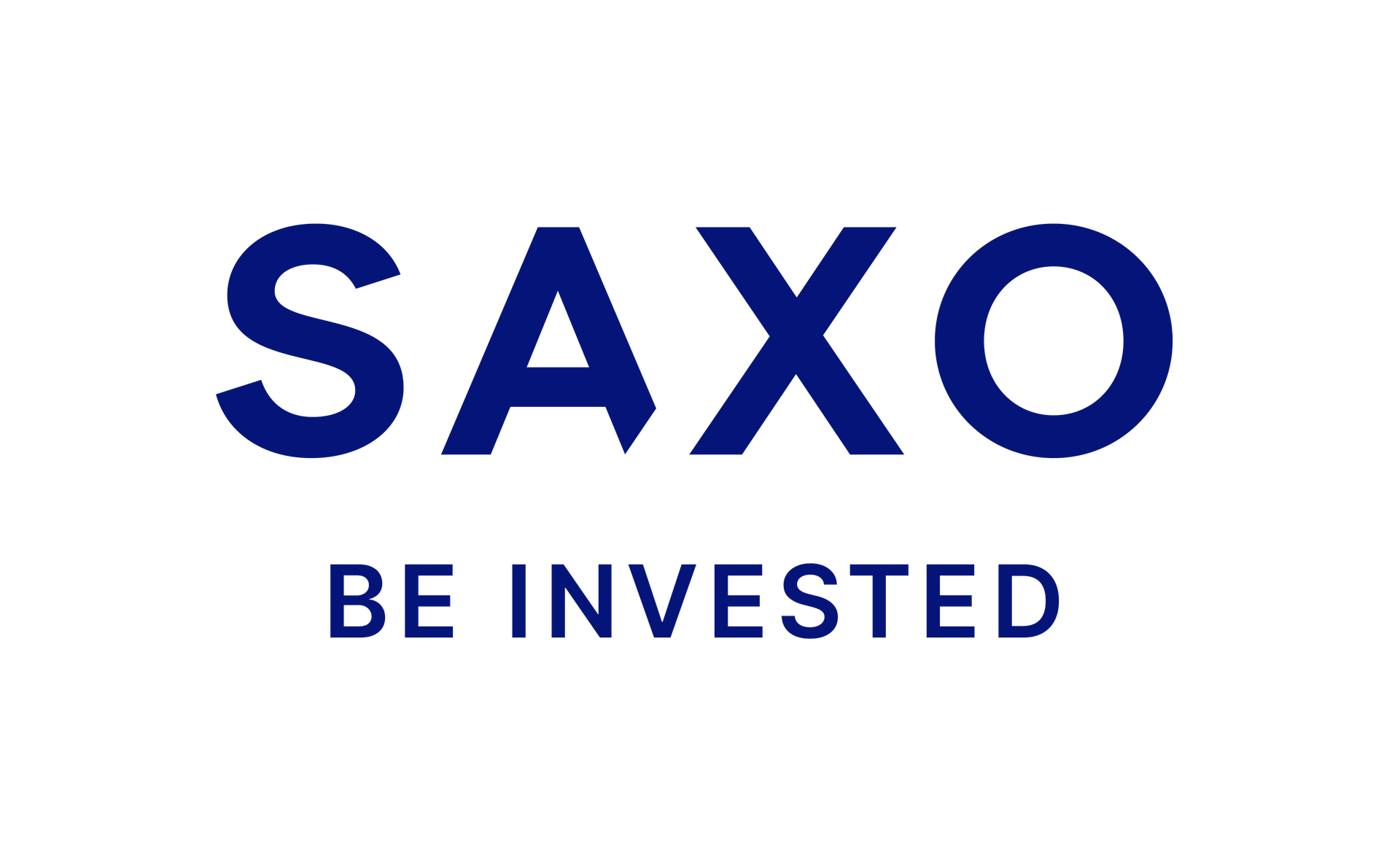Food price inflation could rise to 4% by 2025, as analyst DOUBLES predicted
- Peel Hunt cites NIC increases and living wages as food price forecast rises to 3%
According to analysts at Peel Hunt, food inflation in Britain could reach almost 4 percent by the end of 2025 as supermarkets respond to cost pressures from Labour’s autumn budget.
The broker on Monday doubled its forecast for food inflation in 2025 from 1.5 to 3 percent, due to higher employer contributions to national insurance, a national increase in the living wage and the impact of the employment law.
However, it is said that food inflation could rise throughout the year and could be closer to 4 percent by the end of 2025.
Peel Hunt also cited Britain’s over-reliance on imports from the European Union and the country’s strained relations with the bloc, where “unpalatable bureaucratic spaghetti” and looming regulatory changes will push prices up further this year.
And while food prices are not part of the Bank of England’s measure of consumer price inflation, Peel Hunt analysts warned that higher food costs could weigh on policymakers’ ability to cut interest rates this year.
Food inflation in Britain approached 20 percent in early 2023, following Russia’s invasion of Ukraine last year.
Peel Hunt has upgraded its UK food inflation forecasts, saying prices could rise 4% in 2025
The latest data from the Office for National Statistics shows that the 12-month CPIH rate for food and non-alcoholic drinks was just 2 percent in November, although this was up from 1.9 percent in October.
More recent data from market researcher Kantar shows annual food price inflation at 2.6 percent in the four weeks to December 1, up from 2.3 percent in the previous four-week period.
Peel Hunt expects price growth to remain relatively stable throughout the first quarter, but the broker warned that the outlook will ‘change gradually’ from April onwards.
It said: ‘Cost recovery for the entire UK food system (will be) a new priority, with work expected to have started the day after the October Budget.’
Chancellor Rachel Reeves announced in the autumn that employers will pay a 15 per cent premium on employee salaries above £5,000, instead of the current 13.8 per cent levy on wages above £9,100.
Peel Hunt said the change is ‘quite large on an annual basis’, which could cost Tesco alone £250m, with key suppliers also facing ‘state-induced labor costs in the tens of millions’.
The broker believes the impact will be equivalent to 0.5 to 1 percent on ONS food prices.
The national living wage will rise by 6.7 per cent to £12.21 per hour from April, while the minimum wage for 18 to 20-year-olds will rise by 16.3 per cent to £10 per hour.
Peel Hunt said Britain’s top supermarkets are already paying ‘near or above’ the new rate but could still be forced to raise wages to keep pace with the rest of the labor market, while the impact will be felt even more keenly by suppliers and manufacturers .
The government’s controversial employment law was also highlighted.
Peel Hunt said: ‘When the bill will come into force and in what form remains to be seen, but for the large workforce employed by the UK food system and supermarkets in particular, if and when such high costs materialize the impact is again significant. probably noticeable at the edge of the shelf.’
It added: ‘We expect UK food inflation to increase until 2025, potentially ending the year closer to 4 per cent, given the multitude of largely government and regulatory costs facing the system.
‘For now, it is not food commodities, crude oil or the British pound that are causing food inflation in Britain, contrary to the UK government’s policies.
“So in 2025, if you’re asked why food prices are rising, send the postcard to 11 Downing Street.”

ONS data shows impact of inflationary pressures in wake of Russia’s 2022 invasion of Ukraine on retail food prices
DIY INVESTMENT PLATFORMS

A. J. Bell

A. J. Bell
Easy investing and ready-made portfolios

Hargreaves Lansdown

Hargreaves Lansdown
Free fund trading and investment ideas

interactive investor

interactive investor
Invest for a fixed amount from € 4.99 per month

Sax

Sax
Get £200 back in trading fees

Trade 212

Trade 212
Free trading and no account fees
Affiliate links: If you purchase a product, This is Money may earn a commission. These deals have been chosen by our editors because we believe they are worth highlighting. This does not affect our editorial independence.
